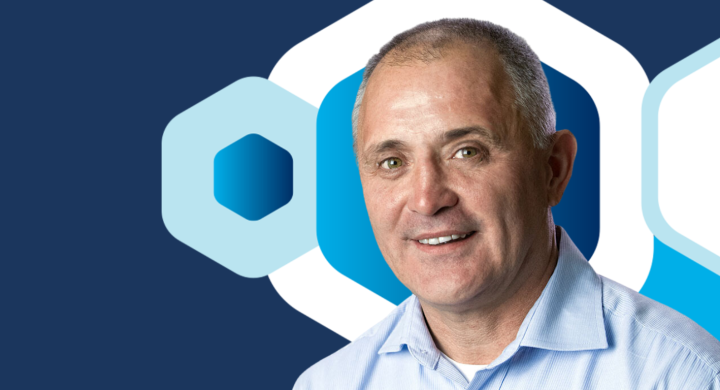December 2024 marks 25 years since Cogstate’s founding in 1999 by Australian neuroscientists and angel investors who saw the potential for technology to democratize brain health measurement – bringing cognitive testing beyond specialist centers to any connected device.
Like many companies, Cogstate was born of uniquely personal experiences among key figures: Martyn Myer, AO (Chairman of the Board), Paul Maruff, PhD (Chief Innovation Officer, Co-Founder), and Dr David Darby, an experienced cognitive neurologist (Co-Founder). Their vision sparked the flame that would become Cogstate’s mission to optimize brain health measurement.
Martyn Myer, The Florey Institute, and an Alzheimer’s Diagnosis in the Family
In the 1960s, Martyn Myer’s father helped establish the Howard Florey Institute of Experimental Physiology and Medicine, now known as the Florey Institute of Neuroscience and Mental Health and one of the world’s most respected institutes for neuroscience.
In 1992, Martyn joined the Florey board, eventually becoming President in 2004. Around the same time, Martyn’s mother was diagnosed with Alzheimer’s disease. “Like many families faced with dementia, we went through the difficult process of diagnosis,” said Martyn. “We lived with the fact that there was no effective treatment to help our mother.”
Martyn’s experiences made him acutely aware of the need for better cognitive assessment solutions. When his friend, David Darby, approached him with an idea sparked in collaboration with Paul Maruff for innovative cognitive testing, Martyn saw the potential and was ready to act.
Paul Maruff & David Darby, Functional Neuroimaging, Individual Change, and Cultural Nuance
Years before they approached Martyn, Paul and David were individually drawn to an emerging field known as functional neuroimaging and became early adopters of the philosophy of using computers to support psychological assessments.
At this same time, Paul was a clinician working with patients taking the drug donepezil to treat symptoms of Alzheimer’s disease. “Families wanted to know if cognition had improved in their loved ones, said Paul. “This had me repeatedly considering a question that would become central to Cogstate: What tools could psychologists use to help make decisions about cognitive change in individuals?”
Beyond clinical work, Paul was conducting academic research administering cognitive assessment with immigrants to Australia and also with Australia’s First Nations communities. In both settings he faced challenges with language and cultural barriers making it difficult to complete standard varieties of cognitive assessments.
“Cognitive assessments are linguistically and culturally bound, and context matters greatly,” said Paul. “We eventually realized if we could develop tests that worked for marginalized communities, they could work for all communities.”
During this period, Paul met David Darby who was a practicing neurologist. David believed so strongly in the idea of a culture-neutral, computer-based approach to individual cognitive measurement, he wanted to start a company dedicated to advancing these methods.
The Birth of Cogstate
It was then that David approached Martyn. “David explained technology could allow initial cognitive testing to be efficiently administered by primary care physicians and other trained health care professionals, rather than specialists,” said Martyn.
“To me, this sounded amazing. The technology would allow us to take cognitive assessment into the community where it could help meet the need for early detection of decline.”
In addition, the science behind the idea was intriguing. “In his work, Paul realized playing cards were a construct that would translate into almost all languages and cultures,” said Martyn. “Cards could be used as the consistent stimuli for testing, and by changing the question asked about them, you could change the cognitive domain being assessed.”
Martyn and David worked to find ‘angel’ investors to launch the company and develop the initial digital cognitive tests using playing cards as stimuli. Cogstate was officially founded in 1999.
The Growth of Cogstate
In 2000, Cogstate achieved first sales in sports medicine assessing cognitive impairment around concussions. To this day, Cogstate supports thousands of athletes worldwide.
In 2004, the company began working with pharmaceutical companies by including Cogstate digital tests to assess cognitive safety in early phase studies. Over time, more tests were developed and used in many different contexts, including in academic and large public private partnership studies. Cogstate expanded to also support data quality programs for clinical endpoints and developed a network of expert clinicians to train site raters and directly act as raters themselves via telehealth.
In 2013 the Cognigram system was introduced as a simple and scientifically valid digital test to aid healthcare professionals with rapid assessment of cognition, supporting the company’s original ambition of easier access to cognitive testing in the community.
Today: An Endpoint Data Quality Company
Today, Cogstate is more than our digital cognitive tests – we are a full-service endpoint data quality assurance company. In addition to our 150 full-time staff, we are also a global network of 220 clinicians who train and oversee raters around the world in more than 40 languages.
The library of Cogstate digital tests has grown from the original 4 tests to 17 tests with a wide range of domain coverage. We have also expanded to support clinical endpoints for more than 70 other license holders. We have progressed our expert clinicians from not only training site raters to also directly acting as raters themselves via telehealth approaches that improve data quality and offer patients the ability to participate in trials with less burden and travel.
As we look to the future, the unmet need for CNS therapeutic advancements is greater than ever with an aging global population. We see an incredible opportunity to continue to optimize the measurement of cognition and other clinical outcomes, in particular by using more advanced data analytics and artificial intelligence approaches to improve the sensitivity and to make testing less burdensome and more accessible.
As much today as 25 years ago, we believe that earlier, more accurate and accessible health insights lead to better outcomes. “There is no health without brain health.” (European Brain Council & The Lancet, April 2024)



